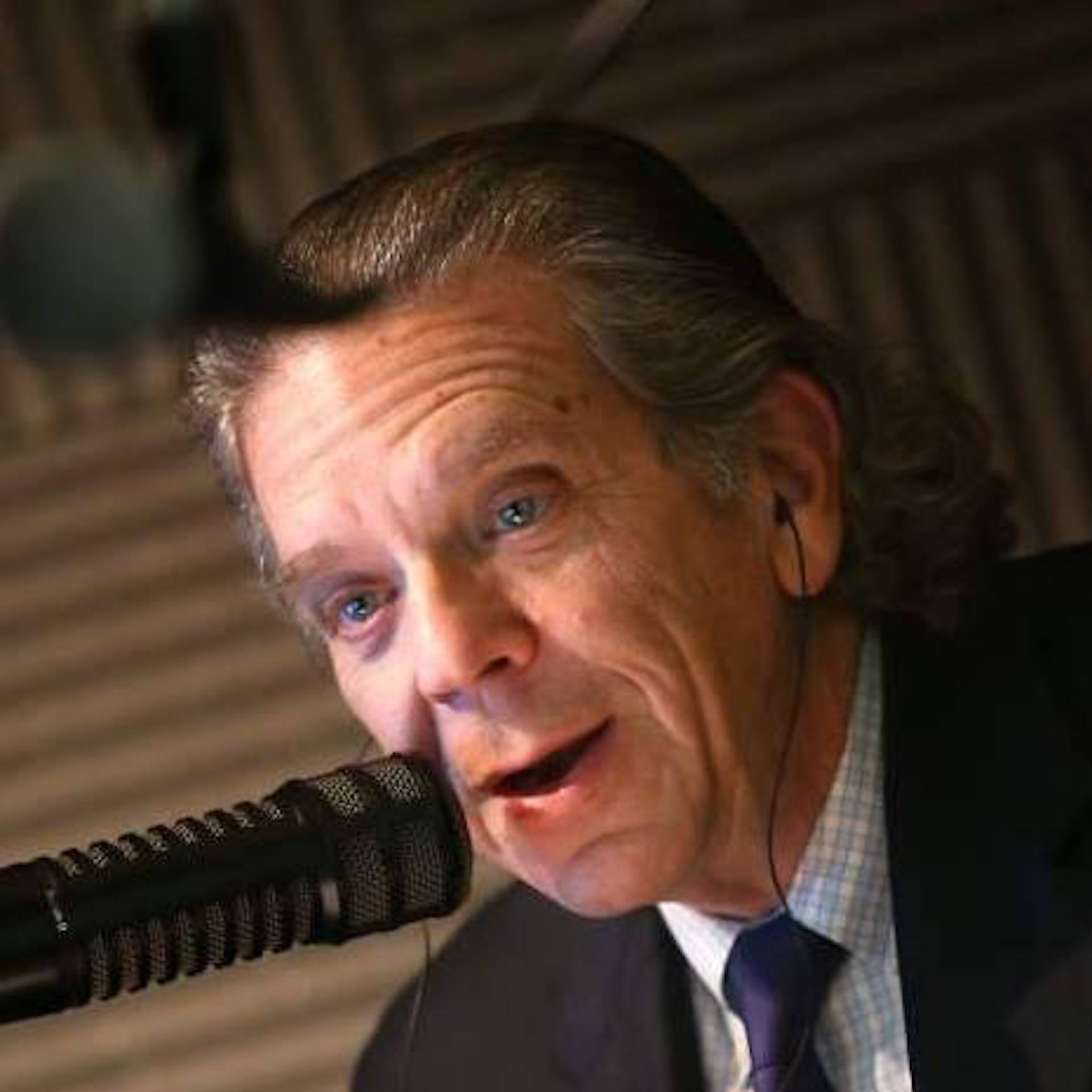Episodes
2 days ago
2 days ago
 In my latest Califonria Sun podcast Sara Fenske Bahat, the former interim chief executive of San Francisco’s Yerba Buena Center for the Arts, explores the interplay between art, politics, and institutional responsibility. Bahat explains the museum’s mission and history leading up to a crisis involving pro-Palestinian protests, questions of free speech, and accusations of antisemitism that ultimately led her to step down. She reflects on that decision, her concerns about safety within the museum, and the broader implications for arts institutions nationwide.
In my latest Califonria Sun podcast Sara Fenske Bahat, the former interim chief executive of San Francisco’s Yerba Buena Center for the Arts, explores the interplay between art, politics, and institutional responsibility. Bahat explains the museum’s mission and history leading up to a crisis involving pro-Palestinian protests, questions of free speech, and accusations of antisemitism that ultimately led her to step down. She reflects on that decision, her concerns about safety within the museum, and the broader implications for arts institutions nationwide.
2 days ago
2 days ago
 As passion runs high on the extremes, so does apathy about this election, about democracy, and about any kind of participation in our civic life. This raises the question: Whose responsibility is it to ensure our civic participation?
As passion runs high on the extremes, so does apathy about this election, about democracy, and about any kind of participation in our civic life. This raises the question: Whose responsibility is it to ensure our civic participation?
In this WhoWhatWhy podcast, I examine the reasons for diminished engagement in American democracy with Yale political scientist Kevin J. Elliott. Elliott argues in his book Democracy for Busy People that many well-intentioned reforms actually exclude and discourage potential voters, especially those struggling to make ends meet. He proposes a radically new approach, emphasizing accessibility, inclusivity, and flexibility, to ensure everyone has a voice in the political process.
Tuesday Jul 09, 2024
Weathering the Storm: A TV Meteorologist’s Fight for Facts in a Post-Truth Era
Tuesday Jul 09, 2024
Tuesday Jul 09, 2024
 When did giving the weather report become a political act worthy of death threats? For years, we got mad at TV weather forecasters if it rained on our picnic when they predicted a clear day. Today, just explaining the “why” behind the weather can get you fired — or even murdered.
When did giving the weather report become a political act worthy of death threats? For years, we got mad at TV weather forecasters if it rained on our picnic when they predicted a clear day. Today, just explaining the “why” behind the weather can get you fired — or even murdered.
In this recent WhoWhatWhy podcast I talk with Chris Gloninger, former chief meteorologist at KCCI-TV in Iowa, who faced this chilling reality when his climate change coverage sparked harassment and death threats. His story exposes a troubling trend: the erosion of respect for expertise and facts, even in realms as fundamental as weather reporting.
Tuesday Jul 02, 2024
Bankruptcy laws are a mess
Tuesday Jul 02, 2024
Tuesday Jul 02, 2024
 The decision this week in the Purdue Pharma case emphasizes how the bankruptcy system protects some and fails others, and how the rich and powerful manipulate it to their advantage while perpetuating race, gender, and financial inequality.
The decision this week in the Purdue Pharma case emphasizes how the bankruptcy system protects some and fails others, and how the rich and powerful manipulate it to their advantage while perpetuating race, gender, and financial inequality.
My guest Melissa Jacoby (author of "UNJUST DEBTS: How Our Bankruptcy System Makes America More Unequal") is a legal scholar focused on bankruptcy and debt.
Jacoby reveals how the bankruptcy system not only falls short in providing basic debt relief to struggling families, but also how lawyers for big enterprises have transformed bankruptcy into a legal Swiss Army knife, impacting everything from sexual harassment, health care and police violence to employment discrimination and the opioid crisis.
Tuesday Jun 25, 2024
One Week in 1999 that Set Up Today's Politics
Tuesday Jun 25, 2024
Tuesday Jun 25, 2024
 The Battle of Seattle, the 1999 protests against the World Trade Organization, marked a major turning point not just for an anti-globalization movement, but for the way we would come to see the world between that protest and the rise of the populist right in 2015.
The Battle of Seattle, the 1999 protests against the World Trade Organization, marked a major turning point not just for an anti-globalization movement, but for the way we would come to see the world between that protest and the rise of the populist right in 2015.
The direct line between those protests and the election of Donald Trump 16 years later is indelible.
It's a story full of enduring lessons about people and power in an age of ascendant corporate influence.
Talking to me in this podcast is DW Gibson, an accomplished oral historian whose new book One Week to Change the World draws on over 100 original interviews with organizers, officials, observers, and more to bring those momentous days to vivid life.
Tuesday Jun 25, 2024
The Supreme Court Continues to Be the Leading Obstacle to the Right to Vote
Tuesday Jun 25, 2024
Tuesday Jun 25, 2024
 The Supreme Court has been eroding democracy for decades. In my recent WhoWhatWhy conversation with Joshua Douglas (The Court v. The Voters: The Troubling Story of How the Supreme Court Has Undermined Voting Rights) he reveals that since the 1970s, the US Supreme Court has been actively destabilizing democracy in the United States.
The Supreme Court has been eroding democracy for decades. In my recent WhoWhatWhy conversation with Joshua Douglas (The Court v. The Voters: The Troubling Story of How the Supreme Court Has Undermined Voting Rights) he reveals that since the 1970s, the US Supreme Court has been actively destabilizing democracy in the United States.
Wednesday Jun 19, 2024
Nicholas Kristof and Chasing Hope
Wednesday Jun 19, 2024
Wednesday Jun 19, 2024
 In this week’s TalkCocktail podcast, Nicholas Kristof, long-time NY Times journalist and two-time Pulitzer Prize winner, talks to me about his new memoir, "Chasing Hope." He takes me on a deeply personal journey through a career spanning more than four decades. Kristof's unwavering commitment to exposing injustice and giving voice to the voiceless has taken him to the far corners of the globe, from the front lines of conflicts to the heart of humanitarian crises, as he has borne witness to some of the most significant events of our time.
In this week’s TalkCocktail podcast, Nicholas Kristof, long-time NY Times journalist and two-time Pulitzer Prize winner, talks to me about his new memoir, "Chasing Hope." He takes me on a deeply personal journey through a career spanning more than four decades. Kristof's unwavering commitment to exposing injustice and giving voice to the voiceless has taken him to the far corners of the globe, from the front lines of conflicts to the heart of humanitarian crises, as he has borne witness to some of the most significant events of our time.
Thursday Jun 13, 2024
The changing social and political contours of divorce
Thursday Jun 13, 2024
Thursday Jun 13, 2024
 Like every social construct, espeically those impacting women, the divorce landscape is changing. and as usual, California is setting the path. After all, California was the first state to introduce no-fault divorce in 1970 under then-Gov. Ronald Reagan, and celebrity divorces make lots of headlines. My guest on this California Sun podcast, Lauren Petkin, has been practicing family law in Los Angeles for 36 years. She lays out today's divorce landscape, including mediation vs. litigation, the rise in prenups, collaborative divorce, alimony reforms, and the use of private judges.
Like every social construct, espeically those impacting women, the divorce landscape is changing. and as usual, California is setting the path. After all, California was the first state to introduce no-fault divorce in 1970 under then-Gov. Ronald Reagan, and celebrity divorces make lots of headlines. My guest on this California Sun podcast, Lauren Petkin, has been practicing family law in Los Angeles for 36 years. She lays out today's divorce landscape, including mediation vs. litigation, the rise in prenups, collaborative divorce, alimony reforms, and the use of private judges.
Wednesday May 29, 2024
The Little Newsroom That Could: A Conversation With Ken Doctor
Wednesday May 29, 2024
Wednesday May 29, 2024
 There is still hope for local news. Over the years, the Pulitzer Prize for “breaking news reporting” has typically been awarded to major legacy media brands. However, this year a hyperlocal online publication, the Santa Cruz Lookout, received the prestigious honor for its coverage of the once-in-a-century floods that devastated Santa Cruz in January 2023. On this week’s California Sun podcast I talk with Ken Doctor, who founded the Lookout in 2020, details how the newsroom covered the floods, and how it has emerged as a potential model for the future of local journalism.
There is still hope for local news. Over the years, the Pulitzer Prize for “breaking news reporting” has typically been awarded to major legacy media brands. However, this year a hyperlocal online publication, the Santa Cruz Lookout, received the prestigious honor for its coverage of the once-in-a-century floods that devastated Santa Cruz in January 2023. On this week’s California Sun podcast I talk with Ken Doctor, who founded the Lookout in 2020, details how the newsroom covered the floods, and how it has emerged as a potential model for the future of local journalism.
Wednesday May 29, 2024
An Election Prophecy: How 13 Keys Unlock Presidential Election Outcomes
Wednesday May 29, 2024
Wednesday May 29, 2024
 Can elections be predicted like hurricanes or sporting events? American University professor Allan Lichtman believes so, and he has the track record to prove it. Using his unique “13 Keys to the White House” system, Lichtman has, according to him, correctly predicted the outcome of 10 out of the last 10 presidential elections.
Can elections be predicted like hurricanes or sporting events? American University professor Allan Lichtman believes so, and he has the track record to prove it. Using his unique “13 Keys to the White House” system, Lichtman has, according to him, correctly predicted the outcome of 10 out of the last 10 presidential elections.
In this episode of my WhoWhatWhy podcast, I talk with Lichtman to unpack his groundbreaking method, which goes beyond fleeting polling numbers to consider the complex interplay of 13 immutable forces that, he says, determine who will occupy the Oval Office.
Thursday May 23, 2024
The Conservative Futurist: A Conversation with James Pethokoukis
Thursday May 23, 2024
Thursday May 23, 2024
 Like a shark, if we don't keep moving forward, we die. James Pethokoukis, a renowned economic policy expert, shares insights from his groundbreaking work, "The Conservative Futurist." Pethokoukis presents a captivating vision of a future where technological advancements and environmental preservation harmoniously coexist. Where the intersection of technology, culture, and politics, and discovery join to embrace a bold, future-oriented mindset. One that could lead us to a world of abundance and wonder.
Like a shark, if we don't keep moving forward, we die. James Pethokoukis, a renowned economic policy expert, shares insights from his groundbreaking work, "The Conservative Futurist." Pethokoukis presents a captivating vision of a future where technological advancements and environmental preservation harmoniously coexist. Where the intersection of technology, culture, and politics, and discovery join to embrace a bold, future-oriented mindset. One that could lead us to a world of abundance and wonder.
Monday May 20, 2024
Monday May 20, 2024
 In "The Guarantee," Natalie Foster argues that our current economic system is failing too many Americans, despite signs of growth. As millennials and Gen Z build wealth amidst the greatest transfer of wealth in history, stubborn pockets of economic stagnation persist.
In "The Guarantee," Natalie Foster argues that our current economic system is failing too many Americans, despite signs of growth. As millennials and Gen Z build wealth amidst the greatest transfer of wealth in history, stubborn pockets of economic stagnation persist.
Foster explores what it would take to create an economy that works for everyone, questioning whether the government should guarantee basic rights like housing, healthcare, education, and a living wage. Drawing on mainstream and heterodox ideas, she passionately argues for a radical rethinking of the relationship between government, the economy, and the people, viewing guaranteed economic rights as an urgent necessity.
Tuesday May 14, 2024
The Looming Threats to the 2024 Election: Anatomy of an Election Meltdown
Tuesday May 14, 2024
Tuesday May 14, 2024
 On this week’s WhoWhatWhy podcast, I sit down with the lead author of that report, military sociologist Marek N. Posard, to examine these alarming threats and what we can do to counter them.
On this week’s WhoWhatWhy podcast, I sit down with the lead author of that report, military sociologist Marek N. Posard, to examine these alarming threats and what we can do to counter them.
Imagine a small, seemingly innocuous hack on a local water treatment plant. A carefully timed disinformation campaign, powered by the latest in artificial intelligence. The physical security of our voting machines compromised. Suddenly, we have the perfect storm that could bring down the integrity of the entire 2024 presidential election and our democracy along with it
This isn’t just a hypothetical scenario — it’s a very real possibility outlined in a chilling new report from the RAND Corporation, titled, The 2024 U.S. Election, Trust, and Technology: Preparing for a Perfect Storm of Threats to Democracy.
Tuesday May 14, 2024
Tuesday May 14, 2024
 On thisWhoWhatWhy podcast, we explore the potential for a total reimagining of our beleaguered American democracy.
On thisWhoWhatWhy podcast, we explore the potential for a total reimagining of our beleaguered American democracy.
Joining me is Maxwell Stearns, a professor of law at the University of Maryland Carey School of Law. An esteemed author of numerous articles and books on the Constitution, the Supreme Court, and legal economics, Stearns’s latest work is Parliamentary America: The Least Radical Means of Radically Repairing Our Broken Democracy.
Tuesday May 07, 2024
Rewiring Our Brains: The Alarming Neurological Consequences of Climate Change
Tuesday May 07, 2024
Tuesday May 07, 2024
 Climate change is not just threatening our planet, but also our minds. In my WhoWhatWhy podcast, I examine the hidden mental health crisis triggered by climate change with neuroscientist-turned-environmental-journalist Clayton Page Aldern.
Climate change is not just threatening our planet, but also our minds. In my WhoWhatWhy podcast, I examine the hidden mental health crisis triggered by climate change with neuroscientist-turned-environmental-journalist Clayton Page Aldern.
Aldern takes us on an eye-opening journey through cutting-edge research, exposing the ways our changing environment is physically altering our brains and behavior. From cognitive impairment sparked by rising temperatures to the psychological aftermath of natural disasters, he paints a haunting portrait of a crisis that has been largely ignored.
A Rhodes scholar who holds advanced degrees in neuroscience and public policy from the University of Oxford, Aldern is a research affiliate at the Center for Studies in Demography and Ecology and the author of the new book The Weight of Nature: How a Changing Climate Changes Our Brains.
Wednesday May 01, 2024
Wednesday May 01, 2024
 Max Podemski is an urban planner, writer, and illustrator who currently serves as a transportation planner for the city of Los Angeles. In his new book, “A Paradise of Small Houses,” he traces the evolution of American housing types, from the Philadelphia row house and Chicago workers cottage to the California bungalow. Podemski argues, in my recent California Sun podcast, that California’s rich history of desirable multifamily housing could hold a solution to the state’s housing crisis.
Max Podemski is an urban planner, writer, and illustrator who currently serves as a transportation planner for the city of Los Angeles. In his new book, “A Paradise of Small Houses,” he traces the evolution of American housing types, from the Philadelphia row house and Chicago workers cottage to the California bungalow. Podemski argues, in my recent California Sun podcast, that California’s rich history of desirable multifamily housing could hold a solution to the state’s housing crisis.
Thursday Apr 25, 2024
A Journey into the "Filterworld" That Directs Us
Thursday Apr 25, 2024
Thursday Apr 25, 2024
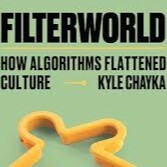 In today's digital era, the unseen threads of algorithms intricately weave through our daily lives. They significantly mold our preferences, decisions, and worldviews. At the core of our modern digital experiences, algorithms curate almost every aspect of our online existence—from the articles we read to the music that we listen to and even the social interactions we engage in. This pervasive influence has subtly streamlined cultural diversity and complexity, ushering us into a domain that my guest, Kyle Chayka, aptly terms "Filterworld."
In today's digital era, the unseen threads of algorithms intricately weave through our daily lives. They significantly mold our preferences, decisions, and worldviews. At the core of our modern digital experiences, algorithms curate almost every aspect of our online existence—from the articles we read to the music that we listen to and even the social interactions we engage in. This pervasive influence has subtly streamlined cultural diversity and complexity, ushering us into a domain that my guest, Kyle Chayka, aptly terms "Filterworld."
In this realm, our experiences are increasingly filtered through algorithmic formulas, aiming not just to predict but to shape our desires. The result is an online landscape that often leads to a uniform culture, devoid of the chaos and ingenuity that fuel human creativity.
Monday Apr 22, 2024
White Rural Rage Is Not Going Away
Monday Apr 22, 2024
Monday Apr 22, 2024
 Between the shimmer of America’s coastlines an inferno of anger and disillusionment consumes the heartland. This week’s WhoWhatWhy podcast explores this social and political divide with Tom Schaller and Paul Waldman, guided by their book, White Rural Rage.
Between the shimmer of America’s coastlines an inferno of anger and disillusionment consumes the heartland. This week’s WhoWhatWhy podcast explores this social and political divide with Tom Schaller and Paul Waldman, guided by their book, White Rural Rage.
Armed with journalistic insight and scholarly acumen, Schaller and Waldman unpack the reality of white rural America’s turmoil. They argue that Trump’s MAGA movement transcends a mere campaign catchphrase to symbolize the deep-seated rage of communities ensnared by economic decay, technological neglect, and cultural isolation.
Thursday Apr 11, 2024
What If Pete Rose Gambled Today?
Thursday Apr 11, 2024
Thursday Apr 11, 2024
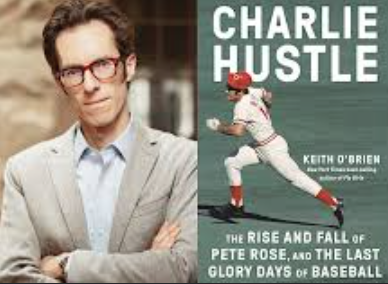 Sports gambling is a multi-billion-dollar business, with 38 states legalizing sports betting. The story of Shohei Ohtani's interpreter reminds us that sports and betting can still be a dangerous mix. And yet, Las Vegas, the betting and sports capital, was the home of this year's Super Bowl. Against this backdrop, the story of Pete Rose becomes even more poignant.
Sports gambling is a multi-billion-dollar business, with 38 states legalizing sports betting. The story of Shohei Ohtani's interpreter reminds us that sports and betting can still be a dangerous mix. And yet, Las Vegas, the betting and sports capital, was the home of this year's Super Bowl. Against this backdrop, the story of Pete Rose becomes even more poignant.
Bestselling author Keith O'Brien's latest book, "Charlie Hustle," offers a captivating chronicle of Rose, one of baseball's most iconic and controversial figures. From a working-class kid to the pinnacle of baseball glory, Rose's journey and his dramatic fall from grace due to gambling scandals reflect a changing America and its beloved pastime. O'Brien's narrative delves deep into the complexities of Rose's character, exploring how he became the center of a storm that changed not only his life but also the fabric of the game of baseball.
Monday Apr 08, 2024
Silicon Soldiers: The Military-Technology Complex
Monday Apr 08, 2024
Monday Apr 08, 2024
 In this WhoWhatWhy podcast, I’m joined by national security journalist Andrew Cockburn. He exposes the little- known links between the Pentagon’s military-technology complex at the dark heart of Silicon Valley.
In this WhoWhatWhy podcast, I’m joined by national security journalist Andrew Cockburn. He exposes the little- known links between the Pentagon’s military-technology complex at the dark heart of Silicon Valley.
Drawing from his recent cover story for Harper’s, entitled “The Pentagon’s Silicon Valley Problem,” Cockburn delves into the military’s controversial alliance with tech behemoths.
This collaboration ropes in some of Silicon Valley’s most contentious figures, such as Peter Thiel and Palmer Luckey, further complicating the moral implications of this union.
Thursday Apr 04, 2024
The Freaks Came Out to Write
Thursday Apr 04, 2024
Thursday Apr 04, 2024
 The Village Voice existed at a unique moment in journalistic history. My guest, journalist Tricia Romano, has penned 'The Freaks Came Out to Write,' the definitive oral history of The Village Voice. It was a publication that not only captured but also shaped the zeitgeist of New York City from the paper's inception in 1955 until its closure in 2018.
The Village Voice existed at a unique moment in journalistic history. My guest, journalist Tricia Romano, has penned 'The Freaks Came Out to Write,' the definitive oral history of The Village Voice. It was a publication that not only captured but also shaped the zeitgeist of New York City from the paper's inception in 1955 until its closure in 2018.
The Voice was more than a newspaper; it was a cultural beacon, a meeting point of news, culture, and lifestyle, embodying the ever-evolving spirit of the city. It's one of those rare instances where a city and a publication converge to capture something unique in the annals of journalism, akin to Playboy and Chicago in the '50s, Rolling Stone and San Francisco in the '60s, and Texas Monthly defining the so-called New South of the '70s.
Wednesday Mar 20, 2024
America Last: The Right's Enduring Romance With Dictators
Wednesday Mar 20, 2024
Wednesday Mar 20, 2024
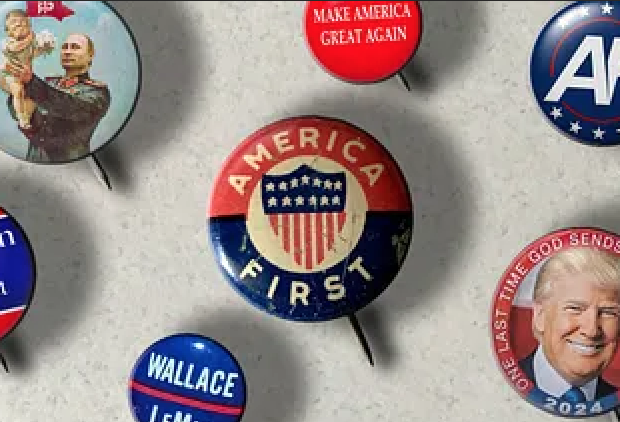 A recent suggestion for a bumper sticker reading “Trump First, Putin Second, America Last” is more than just a witty jab at current political dynamics; it encapsulates the historical depth of right-wing politics in the United States.
A recent suggestion for a bumper sticker reading “Trump First, Putin Second, America Last” is more than just a witty jab at current political dynamics; it encapsulates the historical depth of right-wing politics in the United States.
On thisWhoWhatWhy podcast I’m joined by Jacob Heilbrunn, editor of The National Interest, who offers a compelling analysis of the right wing’s enduring fascination with authoritarian figures.
Drawing on his latest work, America Last: The Right’s Century-Long Romance With Foreign Dictators, Heilbrunn helps us understand the conservative admiration for past autocrats like Mussolini, Franco, and Pinochet. He draws a direct line from these historical figures to today’s political landscape, where figures like Viktor Orban, Donald Trump, and Vladimir Putin are seen not just as authoritarian leaders but as exemplars in the fight against liberalism and progressivism.
Tuesday Mar 12, 2024
Marriage is Now a Luxury Good
Tuesday Mar 12, 2024
Tuesday Mar 12, 2024
 Professor Melissa Kearney, talks to me about the overlooked economic and social impacts of marriage and family structures and her book, "The Two-Parent Privilege." Kearney's research reveals the decline in marriage rates, particularly among non-college graduates, as an economic crisis with far-reaching consequences. She argues that the decrease in two-parent households, from 77% in 1980 to 63% today, affects children's behavior, education, and the class divide. Kearney emphasizes the economic imperatives of this issue, moving beyond the traditional cultural and political debates.
Professor Melissa Kearney, talks to me about the overlooked economic and social impacts of marriage and family structures and her book, "The Two-Parent Privilege." Kearney's research reveals the decline in marriage rates, particularly among non-college graduates, as an economic crisis with far-reaching consequences. She argues that the decrease in two-parent households, from 77% in 1980 to 63% today, affects children's behavior, education, and the class divide. Kearney emphasizes the economic imperatives of this issue, moving beyond the traditional cultural and political debates.
Thursday Mar 07, 2024
Matthias Gafni gives voice to the lost souls of San Francisco
Thursday Mar 07, 2024
Thursday Mar 07, 2024
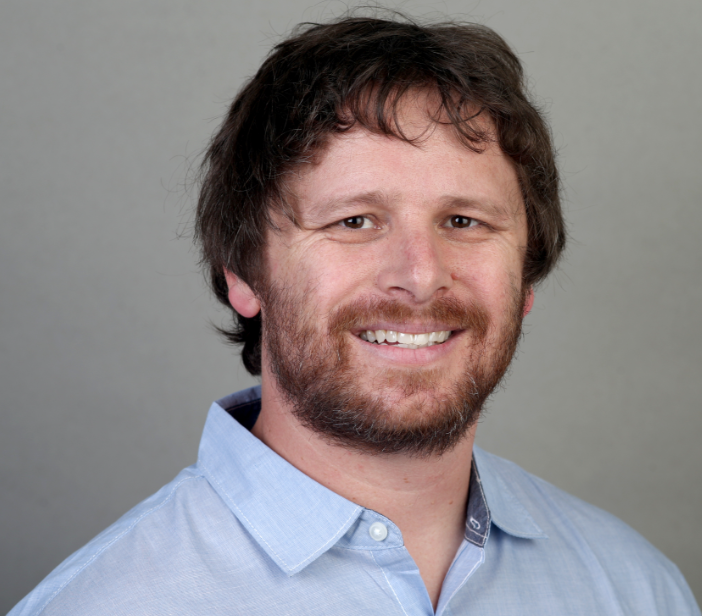 Matthias Gafni, an investigative reporter for the San Francisco Chronicle, delves into the darkest corners of the streets of San Francisco. For a recent project, he attempted to attribute names, faces, and families to 24 overdose deaths during a particularly harrowing week in 2023. They were not mere statistics but individuals with stories: a recent immigrant dreaming of a new life; a star student and athlete; a mechanic striving to escape his past, among others. Each narrative sheds light on the complex interplay of drug use, mental illness, and profound, systemic issues fueling the city’s drug crisis.
Matthias Gafni, an investigative reporter for the San Francisco Chronicle, delves into the darkest corners of the streets of San Francisco. For a recent project, he attempted to attribute names, faces, and families to 24 overdose deaths during a particularly harrowing week in 2023. They were not mere statistics but individuals with stories: a recent immigrant dreaming of a new life; a star student and athlete; a mechanic striving to escape his past, among others. Each narrative sheds light on the complex interplay of drug use, mental illness, and profound, systemic issues fueling the city’s drug crisis.
Wednesday Feb 21, 2024
Reclaiming Populism: It’s Not What We Think It Is
Wednesday Feb 21, 2024
Wednesday Feb 21, 2024
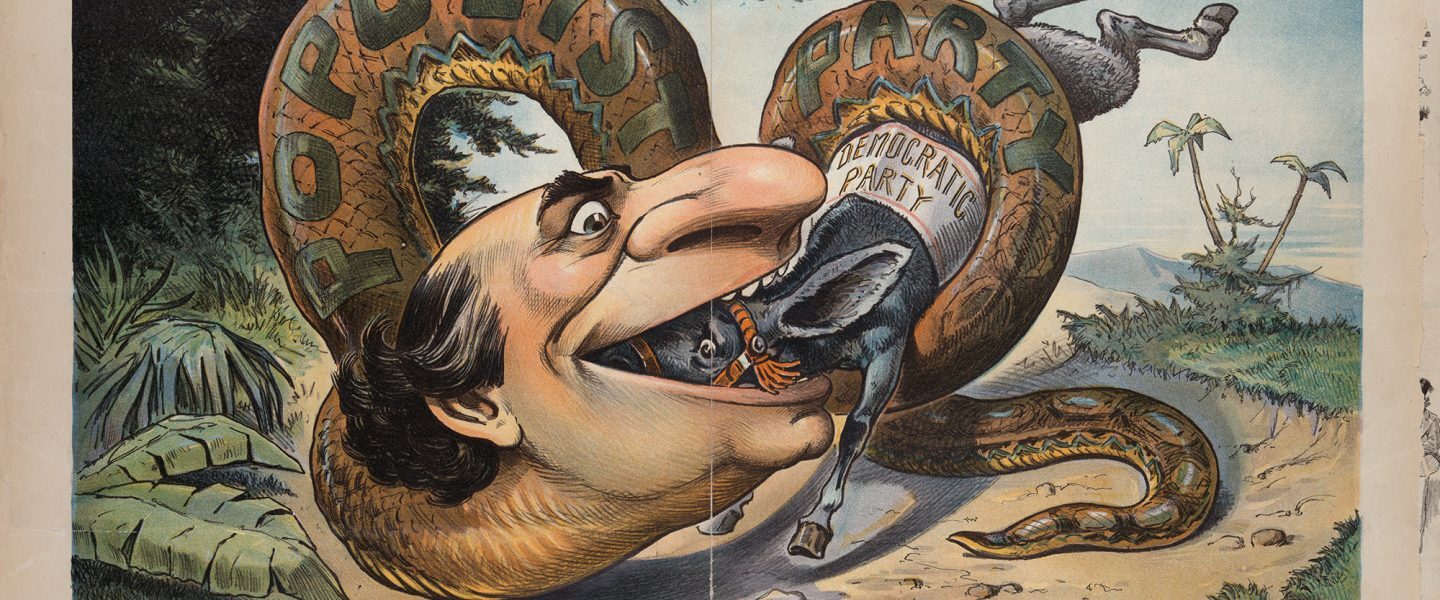 As we look at the global political landscape, we see a resurgence of movements labeled as populist. Propelled by rapid social and technological changes, economic upheavals, and complex migration patterns, people around the world are in search of simple solutions to increasingly complex problems. This week my guest on the WhoWhatWhy podcast Steve Babson, argues that this represents a serious misinterpretation of the concept of populism.
As we look at the global political landscape, we see a resurgence of movements labeled as populist. Propelled by rapid social and technological changes, economic upheavals, and complex migration patterns, people around the world are in search of simple solutions to increasingly complex problems. This week my guest on the WhoWhatWhy podcast Steve Babson, argues that this represents a serious misinterpretation of the concept of populism.
Monday Feb 12, 2024
Laura Pappano: The Political Battles inside America's Public Schools
Monday Feb 12, 2024
Monday Feb 12, 2024
 In this podcast, I welcome Laura Pappano, author of "School Moms: Parent Activism, Partisan Politics, and the Battle for Public Education," to explore the intense politicization of American public schools. Pappano, with over thirty years of experience, delves into the far-right's efforts to control education, highlighting the shift from parental support to activism amidst challenges like local school failures and the pandemic. This conversation sheds light on the battle for the soul of our nation, emphasizing the critical role of public schools in democratic society and the ongoing fight to preserve them as a cornerstone of inclusion, hope, and belonging.
In this podcast, I welcome Laura Pappano, author of "School Moms: Parent Activism, Partisan Politics, and the Battle for Public Education," to explore the intense politicization of American public schools. Pappano, with over thirty years of experience, delves into the far-right's efforts to control education, highlighting the shift from parental support to activism amidst challenges like local school failures and the pandemic. This conversation sheds light on the battle for the soul of our nation, emphasizing the critical role of public schools in democratic society and the ongoing fight to preserve them as a cornerstone of inclusion, hope, and belonging.
Thursday Feb 01, 2024
Chance Vs. Choice: How Flukes Shape Our Lives
Thursday Feb 01, 2024
Thursday Feb 01, 2024
 Do we have the control over our own lives that we think we do? According to Brian Klaas, in his mind-bending new book FLUKE: Chance, Chaos, and Why Everything We Do Matters, we control nothing, but we influence everything.
Do we have the control over our own lives that we think we do? According to Brian Klaas, in his mind-bending new book FLUKE: Chance, Chaos, and Why Everything We Do Matters, we control nothing, but we influence everything.
Think about the unexpected twists of fate that shape our lives. How many times have you stumbled upon a life-changing moment purely by accident? The party you almost skipped, where you met your significant other or a lifelong friend. Or that time you got lost in a neighborhood, only to find your future home. And in a more somber reflection, those who, by sheer chance, overslept or got stuck in traffic and missed their flights on September 11th.
We operate under what Klaas calls the 'delusion of individualism.' But it’s small changes in the world that often result in big changes."
Monday Jan 29, 2024
Is the Abortion Battle the New Foundation for Modern Political Activism?
Monday Jan 29, 2024
Monday Jan 29, 2024
 In this week’s WhoWhatWhy podcast — marking the 51st anniversary of Roe v. Wade — I talk with Felicia Kornbluh, professor of history and gender studies at the University of Vermont. In our far-ranging conversation, we delve into significant shifts in the battle for reproductive rights following the Dobbs decision.
In this week’s WhoWhatWhy podcast — marking the 51st anniversary of Roe v. Wade — I talk with Felicia Kornbluh, professor of history and gender studies at the University of Vermont. In our far-ranging conversation, we delve into significant shifts in the battle for reproductive rights following the Dobbs decision.
Kornbluh, drawing insights from her book, A Woman’s Life Is a Human Life, sheds light on the resurgence of effective activism in states like California, Ohio, and Kansas.
She explores how this wave of reproductive rights activism, ignited by Dobbs, is emerging as a key driver of political participation in 2024, potentially impacting the upcoming elections at local, state, and federal levels.
Thursday Jan 25, 2024
Media Crack-up 2024: A Conversation with Project Censored's Mickey Huff
Thursday Jan 25, 2024
Thursday Jan 25, 2024
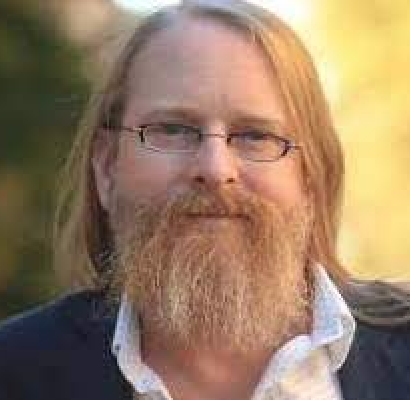 In a rapidly changing media landscape, where giants like Conde Nast, the Los Angeles Times, Sports Illustrated, and the Washington Post face massive layoffs, the very nature of news is transforming and it’s impacting our democracy.
In a rapidly changing media landscape, where giants like Conde Nast, the Los Angeles Times, Sports Illustrated, and the Washington Post face massive layoffs, the very nature of news is transforming and it’s impacting our democracy.
I talk with Mickey Huff, director of Project Censored, about the critical state of the media, who’s to blame and about his book "STATE OF THE FREE PRESS 2024." We delve into the top 25 underreported stories of 2023, and examine how corporate and political influences shape news reporting today.
Monday Jan 22, 2024
From Anxiety to Action: Young Floridians Transforming Politics
Monday Jan 22, 2024
Monday Jan 22, 2024
 Amid widespread concern about our politics, young, passionate individuals like Devon Murphy-Anderson and Alex Berrios are making a significant impact. In this week’s WhoWhatWhy podcast, we delve into their efforts to turn Florida blue.
Amid widespread concern about our politics, young, passionate individuals like Devon Murphy-Anderson and Alex Berrios are making a significant impact. In this week’s WhoWhatWhy podcast, we delve into their efforts to turn Florida blue.
Murphy-Anderson and Berrios, through their initiative Mi Vecino, are revitalizing the grassroots political scene in Florida. They’re particularly focused on engaging Latino and Hispanic voters, not just during election cycles but throughout the year. They explain how this approach marks a departure from traditional, election-focused voter contact strategies.
Wednesday Jan 17, 2024
Digital Titans and the Echoes of the Gilded Age
Wednesday Jan 17, 2024
Wednesday Jan 17, 2024
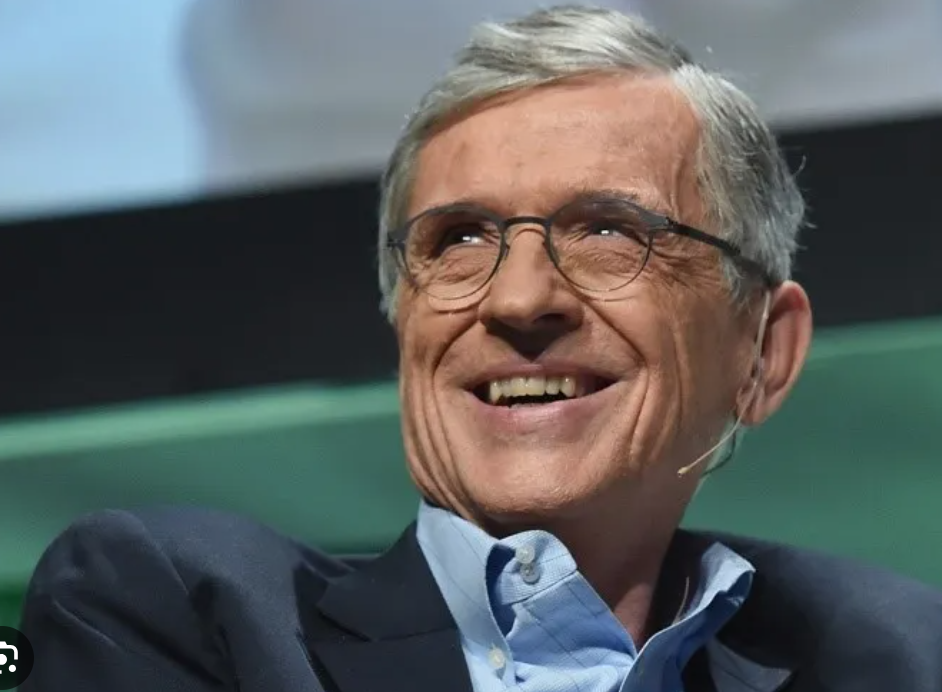 The U.S. economy has shifted from traditional manufacturing giants to tech behemoths such as Amazon and Apple, driving significant economic and social changes. This evolution, while beneficial, also stirs fears about corporate power and change. Today's digital landscape, according to my guest, Tom Wheeler, mirrors the Gilded Age, suggesting a repeat of history's paradoxes of innovation and corporate excess. Wheeler, former FCC chairman and author of "Techlash," draws parallels between these eras, highlighting how digital entrepreneurs, like their industrial predecessors, create groundbreaking products while often engaging in questionable practices. He talks to me about these dynamics and the need for regulatory oversight in the digital age.
The U.S. economy has shifted from traditional manufacturing giants to tech behemoths such as Amazon and Apple, driving significant economic and social changes. This evolution, while beneficial, also stirs fears about corporate power and change. Today's digital landscape, according to my guest, Tom Wheeler, mirrors the Gilded Age, suggesting a repeat of history's paradoxes of innovation and corporate excess. Wheeler, former FCC chairman and author of "Techlash," draws parallels between these eras, highlighting how digital entrepreneurs, like their industrial predecessors, create groundbreaking products while often engaging in questionable practices. He talks to me about these dynamics and the need for regulatory oversight in the digital age.
The U.S. economy has shifted from traditional manufacturing giants to tech behemoths such as Amazon and Apple, driving significant economic and social changes. This evolution, while beneficial, also stirs fears about corporate power and change. Today's digital landscape, according to my guest, Tom Wheeler, mirrors the Gilded Age, suggesting a repeat of history's paradoxes of innovation and corporate excess. Wheeler, former FCC chairman and author of "Techlash," draws parallels between these eras, highlighting how digital entrepreneurs, like their industrial predecessors, create groundbreaking products while often engaging in questionable practices. He talks to me about these dynamics and the need for regulatory oversight in the digital age.
Monday Jan 15, 2024
MAGA Unraveled: An Insider’s Perspective on Right-Wing America
Monday Jan 15, 2024
Monday Jan 15, 2024
 On this week’s WhoWhatWhy podcast we talk with journalist Tina Nguyen, author of The MAGA Diaries: My Surreal Adventures Inside the Right Wing and How I Got Out. A one-time MAGA fellow traveler, Nguyen delves deep into the heart of the movement.
On this week’s WhoWhatWhy podcast we talk with journalist Tina Nguyen, author of The MAGA Diaries: My Surreal Adventures Inside the Right Wing and How I Got Out. A one-time MAGA fellow traveler, Nguyen delves deep into the heart of the movement.
Challenging the notion that it’s merely a product of Trump’s influence, Nguyen — who journeyed from a conservative student to disenchanted MAGA-member to jobs at Politico, Vanity Fair, and now Puck — exposes the intricate network of well-funded conservative organizations that have shaped right-wing politics going all the way back to the 1960s.
Wednesday Jan 10, 2024
The Last Candidate of the GOP
Wednesday Jan 10, 2024
Wednesday Jan 10, 2024
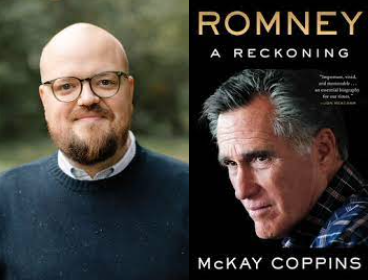
McKay Coppins' 'Romney, A Reckoning' transcends a mere political biography, Coppins highlights Mitt Romney as the final presidential candidate of a now-transformed party, portraying him as a historical footnote. Coppins adeptly elucidates Romney's journey and the pivotal role he played in the party's evolution.
Saturday Jan 06, 2024
‘Fox News’ Is Not News
Saturday Jan 06, 2024
Saturday Jan 06, 2024
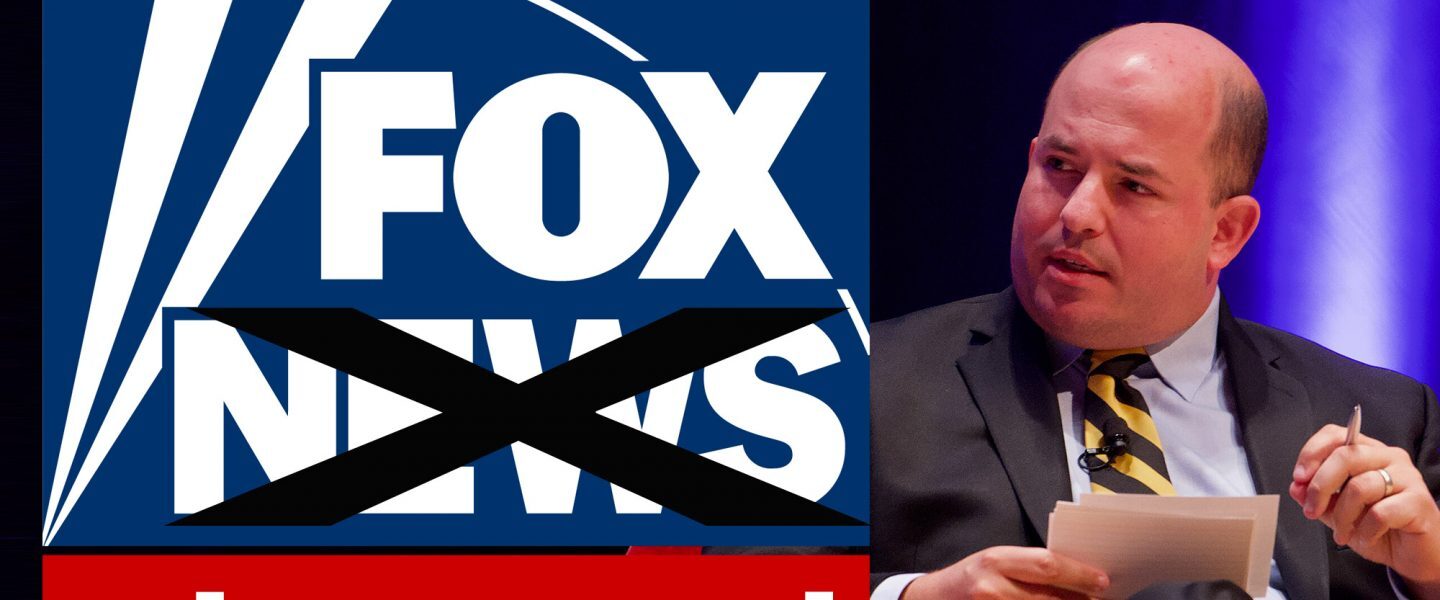
On the third anniversary of January 6th, this WhoWhatWhy podcast features Brian Stelter, former CNN host and author of Network of Lies: The Epic Saga of Fox News, Donald Trump, and the Battle for American Democracy.
It’s clear that Fox News will likely play a key role in determining whether America remains a democracy, and Stelter provides a colonoscopy into Fox News’s influential role in shaping U.S. politics, especially post-2020 election.
He examines the network’s complex relationship with truth, and why it’s been so successful in conning a huge group of low information voters. He shares unknown information about key figures like Tucker Carlson and Rupert Murdoch.
The podcast also explains Sean Hannity’s clever avoidance of fallout and Carlson’s impact on the GOP and white nationalism.
Stelter discusses the details of the billion-dollar defamation lawsuit by Dominion Voting Systems, revealing how Fox News perpetuated election falsehoods and its ongoing effect on the decay of American democracy.
Wednesday Dec 27, 2023
Wednesday Dec 27, 2023
Monday Dec 11, 2023
Monday Dec 04, 2023
Jonathan Taplin vs. the tech billionaires
Monday Dec 04, 2023
Monday Dec 04, 2023
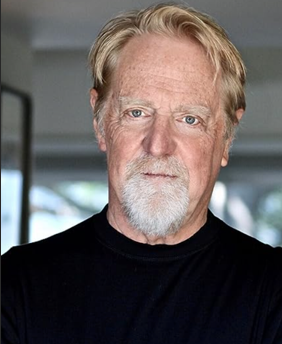
Jonathan Taplin, a film producer, scholar, and director emeritus of the Annenberg Innovation Lab, is a vocal critic of excessive techno-optimism. In his book, "The End of Reality: How Four Billionaires are Selling a Fantasy Future of the Metaverse, Mars, and Crypto," he argues that the California-centric billionaires Peter Thiel, Elon Musk, Mark Zuckerberg, and Marc Andreessen are diverting public attention from critical issues. He criticizes the media's role in glorifying them and advocates for a cultural shift that emphasizes real solutions over escapist narratives.
My California Sun podcast with Jonathan Taplan:
Tuesday Nov 28, 2023
From Poverty to Empowerment: The Rise of the Global Middle Class
Tuesday Nov 28, 2023
Tuesday Nov 28, 2023
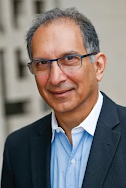 The middle class stands as the most successful demographic in world history. By the time we reach 2030, it's projected that the fifth billionth person will have joined its ranks. This journey, which began just over two centuries ago by people in pursuit of a better life, has sparked an unparalleled global transformation.
The middle class stands as the most successful demographic in world history. By the time we reach 2030, it's projected that the fifth billionth person will have joined its ranks. This journey, which began just over two centuries ago by people in pursuit of a better life, has sparked an unparalleled global transformation.In today's landscape, where half of the global population finds themselves at or above the middle-class threshold, the work of my guest
Monday Nov 27, 2023
Robert Sapolsky and our Illusion of Free Will
Monday Nov 27, 2023
Monday Nov 27, 2023
My California Sun conversation with Robert Sapolsky:
Tuesday Nov 21, 2023
Don’t Shoot the Messenger: The Methods and Power of Pollsters
Tuesday Nov 21, 2023
Tuesday Nov 21, 2023

In this WhoWhatWhy podcast I talk with Scott Keeter, the senior survey adviser at Pew Research Center. In this role, he guides all of Pew’s research and polling. An expert on American public opinion and political behavior, he is a co-author of four books on the subject.
Keeter discusses the complexities of modern polling amid a climate of skepticism and change. As the 2024 elections approach, Keeter confronts the polling industry’s pressing issues: dwindling response rates and the public’s eroding trust in institutions.
My conversation with Scott Keeter:

